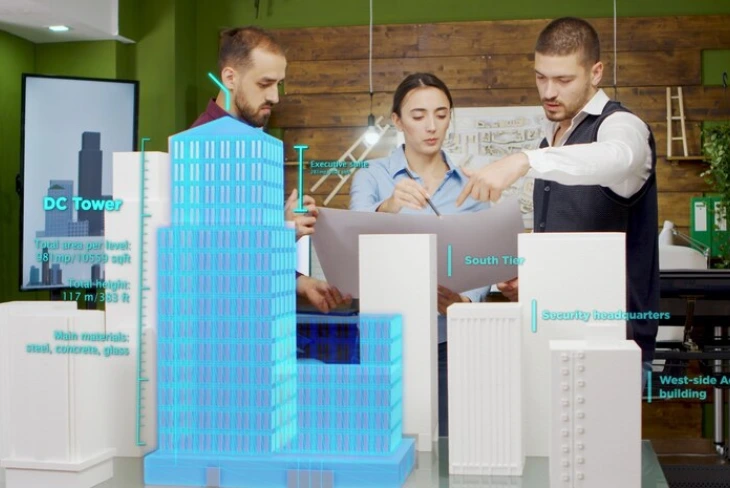The real estate industry, though dealing in physical buildings and land, has not been immune to the digital disruption affecting nearly every other industry. The influence of technology on real estate has given rise to a new category called “property technology” or proptech – technology specifically designed to facilitate real estate processes and activities.
Proptech innovations are bringing tremendous changes across real estate – from how properties are discovered, transacted, managed, and invested to how consumers experience them. As an investor, agent, or property owner, it is essential to understand these technologies defining the future of the industry.
This article explores the key areas where proptech developments are revolutionizing real estate. We will cover the impact on:
- Property search and discovery
- Transactions and deals
- Property management
- Investment platforms
- Overall consumer experience
By the end, you will have a complete overview of the technological transformation shaping real estate’s future. Whether you want to leverage these innovations or simply understand the changing landscape, this is a must-read. Now let’s get started.
Transforming the Search & Discovery Process Of Proptech

The house-hunting journey traditionally involved relying on print listings, real estate agents, and in-person tours. Proptech has stepped in to make searching and discovering properties incredibly convenient through:
Online Real Estate Platforms
Websites like Zillow, Redfin, and Realtor.com aggregate listings across multiple sources into single, searchable databases. Homebuyers can apply filters for property features, price range, and location to instantly find listings matching their criteria.
The ability to shortlist and compare properties side-by-side online makes the search process efficient. Platforms are also beginning to incorporate AI-powered tools providing market insights and recommended listings based on individual preferences.
Mobile Accessibility
Dedicated real estate apps allow searching through millions of properties on the go from your smartphone. Location-based features even identify houses for sale closest to your current location. Instead of planning trips to visit listings, you can preview nearby options instantly.
Immersive Digital Discovery
Online listings now move beyond photos to offer 3D tours, 360-degree videos, aerial drones, and interactive floorplans. Homebuyers can digitally walk through homes to experience the layout and view. Big data analytics further empower listing platforms to predict neighborhood trends, recommend investment locations, and even forecast property resale values.
While these conveniences reduce dependency on real estate agents, professionals who embrace technology for branding and digital outreach continue thriving in the industry. Overall, proptech has successfully transformed the once-tedious search and discovery process into an engaging self-service experience.
Streamlining Transactions and Closing Deals
Proptech is also introducing new possibilities for how real estate transactions can be conducted. By facilitating paperless documentation, secure remote coordination, and informed decision-making, technology enables deals to progress faster than ever with transparency.
Digital Document Management
Cloud-based platforms allow all parties in a deal to collaboratively manage paperwork online. Digital organization of title deeds, purchase contracts, and closing documents reduces physical paperwork and makes important information accessible anytime.
Remote Coordination and eSignatures
Parties can coordinate deals, share updates, and provide approvals completely remotely through digital systems. Features like eSignatures build further trust by encrypting documents needing formal signatures.
Blockchain for Ownership Tracking
The blockchain serves as a virtual public ledger reliably tracking ownership changes of assets like properties. It brings enhanced transparency regarding who formally owns a certain real estate asset at any given time.
AI-Powered Valuation and Analytics
Sophisticated AI tools can assess property aspects like size, location, and neighborhood sales data to provide accurate real-time valuations. Such insights assist negotiations and ensure purchasers do not overpay. Platforms also share localized market statistics to determine fair listing prices.
Ultimately, proptech is driving faster, more informed property transactions, leaving all parties satisfied. Tech-enabled paperless closings will soon become the norm. For now, adopting solutions facilitating remote coordination, document sharing and blockchain tracking will give real estate firms a competitive edge.
Redefining Property Management and Maintenance
Technology is transitioning property management from periodic inspections and reactive maintenance to proactive, predictive, and preventative systems for maximizing building efficiency.
Internet of Things for Remote Monitoring
Internet of Things (IoT) refers to web-connected sensors and devices. In real estate, smart thermostats, security systems, appliances, and lighting can be monitored and controlled remotely via apps and dashboards. Building managers can save site visits through round-the-clock digital oversight.
Enhanced Energy Efficiency and Automation
Smart home devices apply usage patterns to automatically regulate energy-draining systems. Motion sensors trigger lights and HVAC adjustments when rooms are occupied to prevent waste. Smart sprinklers and automated blinds similarly optimize water and sunlight.
Predictive Maintenance and Issue Prevention
Sensors tracking appliance runtimes, pipe pressure, and other metrics provide data to forecast necessary repairs and identify emerging issues before they worsen. Pre-emptively addressing problems minimizes costs and tenant inconvenience.
Streamlined Tenant Coordination
Specialized proptech platforms facilitate tenant screening, onboarding, and communication workflows. Cloud data storage with tenant portals also enables seamless, digitized sharing of applications, legal paperwork, payments, and maintenance requests.
As smart cities become mainstream, integrated infrastructure management solutions will likely interconnect entire metropolitan areas for streamlined oversight. Overall, proptech innovations are making buildings smarter, greener, and easier to run.
Reimagining the Future of Real Estate Investment

Proptech is opening new avenues for investing in real estate – from fractional asset ownership to tokenized properties on blockchain. Virtual reality also allows exploring global opportunities without leaving home.
Digital Exploration of Investments
Interactive 3D modeling and VR tours enable assessing the potential of a property digitally. Investors can visually evaluate layouts, conditions, and renovation scope without costly travel. AR further overlays digital data like market insights as you walk through spaces.
Democratized Ownership and Micro-Investing
Fractional or shared ownership models split high-value properties into smaller shares sold to multiple investors. This novel option opens real estate investing to those without capital for whole buildings. Blockchain further facilitates trading such digitized shares.
Crowdfunding and Global Outreach
REITs (real estate investment trusts) are now being promoted through crowdfunding. Potential investors worldwide can browse, compare, and fund real estate projects online. Global outreach expands opportunities beyond your geography.
Emerging Digital Asset Classes
New real estate asset classes are emerging including tokenized property representations on blockchain, smart contracts encoding investments, and equity in proptech startups disrupting the industry. Digital connectivity makes such assets accessible to everyday investors.
While some indicate a bubble around crypto-centric real estate assets, the core direction is clear – technology is making investment more inclusive, global, and experiential.
Conclusion
Technology has cemented its presence across the real estate landscape – right from search and discovery to investing and transactions. We now have AI-powered tools to find ideal properties, blockchain-enabling fractional ownership, and remote monitoring to maximize efficiency.
However, adaption remains slow. Players displaying reluctance now may find themselves obsolete as proptech becomes the status quo. Consumers already expect integration. For agents and investors too, embracing technology is pivotal to tap into new opportunities and keep up with digitally-empowered purchasers.
The next few years will witness even more radical innovation – VR may replace site visits altogether while smart contracts automate paperwork. Proptech will soon be integral, not just influential. Take the first step now whether through smart tools enhancing productivity or just increasing awareness. The future is already here – gear up to seize it!
Frequently Asked Questions
What exactly is proptech?
Proptech refers to property technology – innovations that utilize technology to facilitate real estate activities like search, transactions, management, and investment. It covers emerging technologies like AI, blockchain, VR, IoT and big data analytics when applied specifically within the real estate context.
How does proptech benefit real estate agents?
Proptech tools help agents provide better service to clients through features like automated home valuations, digital listing management, 3D tours, and paperless transaction workflows. Adopting proptech solutions allows agencies to remain competitive, unlock operational efficiencies, and appeal to digitally-savvy buyers and sellers.
Will proptech make real estate agents obsolete?
While proptech is automating certain tasks related to search and transactions, skilled agents providing consultative services and local market expertise will remain indispensable. Tech can rather assist agents in focusing on high-touch client interactions instead of administrative work. The future will see tech and agents collaborating rather than competing.
What are some proptech companies to watch out for?
Some promising proptech startups leading innovation across search, transactions, investments, and other real estate verticals include Zillow, Redfin, Compass, Opendoor, Blend, Better, Matterport, and Propy. However, with global VC funding in proptech exceeding $30 billion, new disruptive solutions are launching constantly.
How can everyday investors benefit from proptech?
Proptech has introduced new real estate investment models that are more accessible to regular investors, including:
- Fractional ownership platforms allow shared ownership of high-value properties
- Crowdfunding enables you to invest in vetted real estate projects
- Blockchain facilitating the trading of tokenized property assets through cryptocurrency exchanges
- VR/AR tools that allow remote evaluation investment property details
By leveraging such prop-tech platforms, retail investors can gain exposure to lucrative real estate assets without substantial capital or industry access.